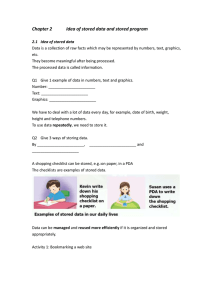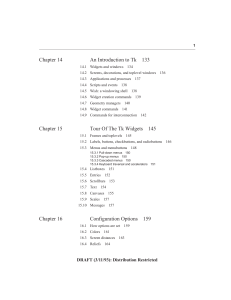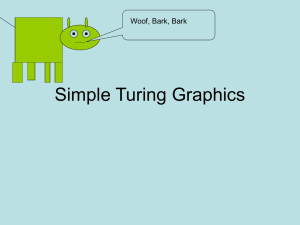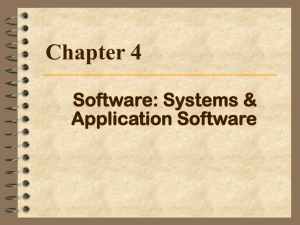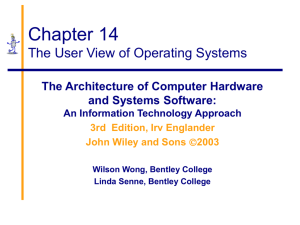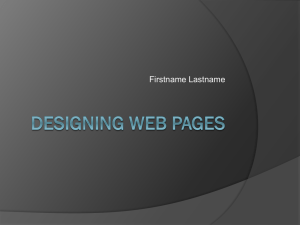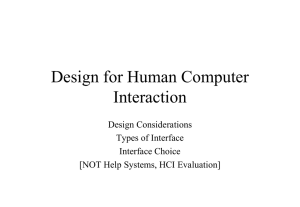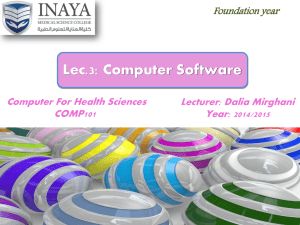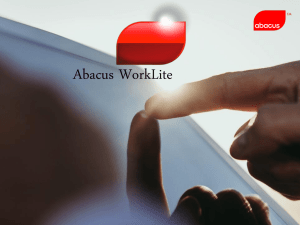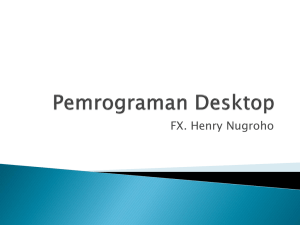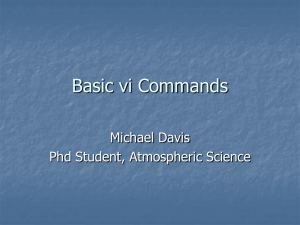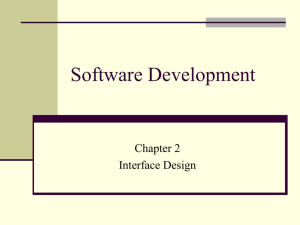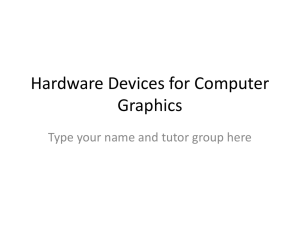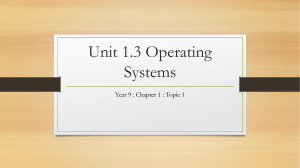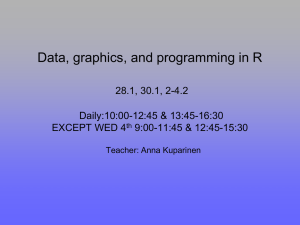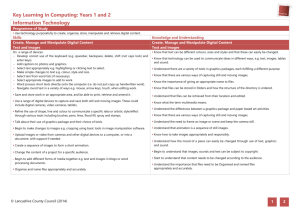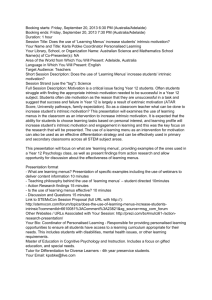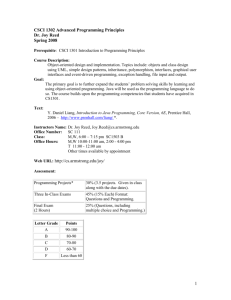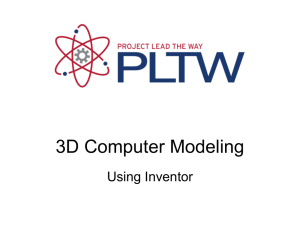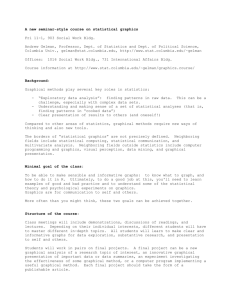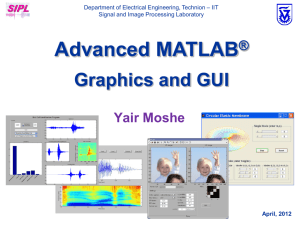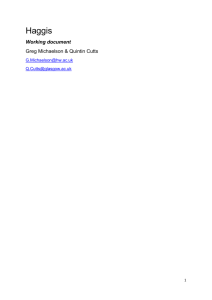AppSoft
advertisement
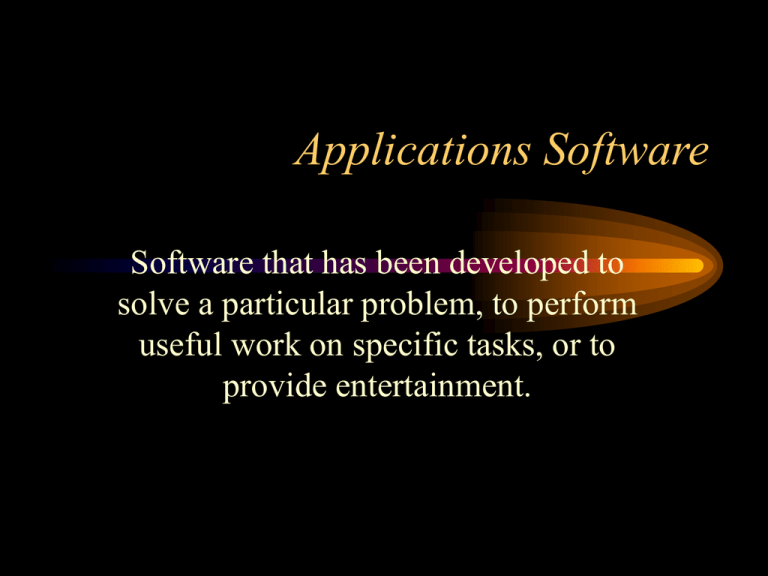
Applications Software Software that has been developed to solve a particular problem, to perform useful work on specific tasks, or to provide entertainment. Applications software and system software You interact principally with the applications software. The applications software interacts with the components of the system software, which in turn interacts directly with the computer The Five Categories of Applications Software • Software can change the way we act, even the way we think. • Application software can be classified into five categories: – Entertainment Software – Home/personal Software – Education/reference Software – Productivity Software – Specialty Software The Categories Common features of Application Software • Special Purpose Keys - are used to enter, delete and edit data and to execute commands. • Function Keys - labelled F1, F2, etc are positioned along the top or left side of the keyboard. They are used to execute commands specific to the software being used. • Macros - also called keyboard shortcuts, is a single ,or series of, keystrokes or commands used to automatically issue a longer, predetermined series of keystrokes or commands. The User Interface • The user interface is the user controllable part of the software that allows you to communicate, or interact, with it. • The kind of interface used by most people is the Graphical User Interface (GUI). Graphical User Interface - GUI • With a GUI you may use graphics and menus as well as keystrokes to choose commands, start programs and see lists of files and other options • Common features of GUIs are menus, windows, icons, buttons and dialog boxes. • A menu is a list of available commands presented on screen. • Menus may appear as menu bars, pull-down (drop-down) menus and pop-up menus. • Windows - a rectangular area that appears on the screen and displays information from a particular part of a program. • Icons - an icon is a picture used in a GUI to represent a command, a program, a file or a task. • Buttons - is a simulated on-screen button (like an icon) that is activated by a mouse or other pointing device to issue a command eg ‘Save’ and ‘Cancel’ • Dialog Box - is a box that appears on the screen and displays a message requiring a response from you. Tutorials • A tutorial is an instruction book or program that takes you through a prescribed series of steps to help you learn how to use the product Documentation • Documentation is a user guide or reference manual that is a narrative and graphical description of a program. • It may be print based, on CD-ROM or on the Internet. Types of Application Software • Wordprocessing - this software allows you to use computers to format, create, edit, print and store text material, as well as graphics, etc. • Spreadsheet - allows users to create tables and financial schedules by entering data and formulas into rows and columns arranged as a grid on a display screen. • Database - databases are collections of interrelated files in a computer system. Database software is a program that controls the structure of a database and access to the data. • Financial Software - ranges from personal finance managers to entry-level accounting programs to business financial-management packages. • Communication Software - manages the transmission of data between computers. Also known as data communications software. • Electronic Mail Software - (email software) - enables users to send letters and files from one computer to another. • Integrated Software - combines the most commonly used features of several applications programs eg wordprocessing, spreadsheet, database into one software package. • Software Suites - are applications with a standard user interface that are bundled together and sold for a fraction of what the programs would cost if sold individually Eg Clarisworks Specialty Software • Desktop Publishing - involves using a microcomputer and a mouse, scanner, laser or ink-jet printer for mixing text and graphics to produce high-quality output for commercial printing. • Presentation Software - uses graphics and data/information from other software tools to communicate or make a presentation of data to others, such as clients, etc • Project Management Software - a program used to plan, schedule and control the people, costs and resources required to complete a project on time. • Computer Aided Design - CAD- software programs for the design of products, structures, civil engineering drawings and maps. • Drawing Programs - graphics software that allows users to design and illustrate objects and products. • Painting Programs - graphics programs that allows users to simulate painting on screen. • Groupware - software that is used on a network that allows users in the same building or even in different countries working on the same project to share ideas and update documents. • Multimedia Authoring Software - enables users to create multimedia applications that integrate text, images ,sound, motion and animation. • Web Browsers - software that enables you to ‘browse through’ and view web sites using web tools such as web directories and search engines Other Software • Public-Domain Software - is software that is not protected by copyright and may be copied by anyone at will. • Freeware - is software that is available free of charge. • Shareware - is copyrighted software that is distributed free of charge, but requires users to make a contribution in order to continue using it. • Proprietary Software - software whose rights are owned by an individual or business. Problems with New Software • Bloatware - some software has too many features which can cause it to run very slowly on older computers. • Shovelware - software makers are in such a hurry to ship out their products into the market place that software has not been tested properly and therefore is full of flaws. Help • There are a number of sources for help when using software – Instruction manuals – Help software – Telephone line help – Commercial how-to books – Knowledgeable friends Ethics - Copyright • Copyright is the exclusive legal right that prohibits copying of intellectual property without the permission of the copyright holder.
